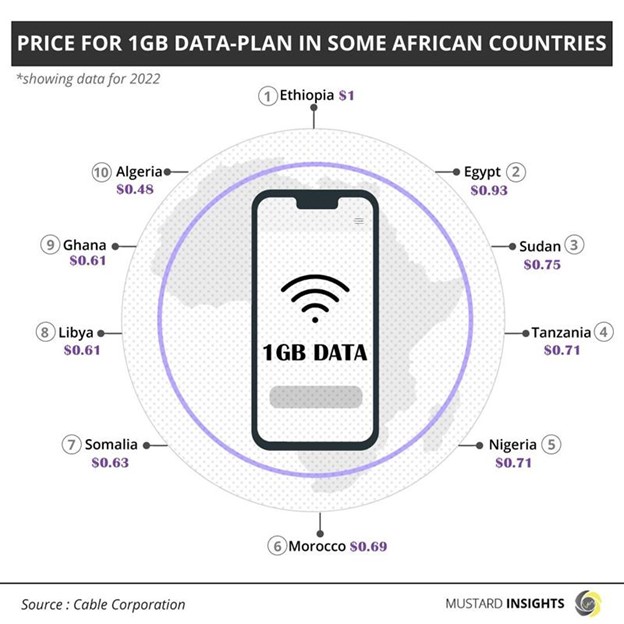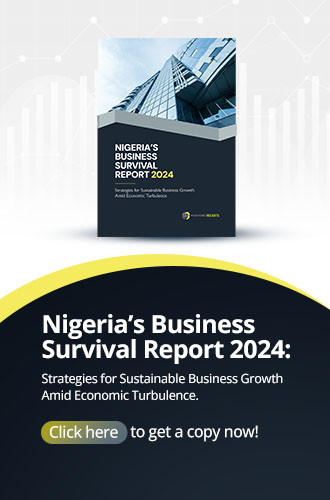In Africa, the cost of accessing the internet is high compared to the rest of the world.

Smartphones have changed how we interact with the world and environment around us, changing how we communicate with each other. As the share of smartphone users in Africa has surpasses the 600 million-mark, the onus of providing internet services lies in the hands of the mobile service providers to cater for the 570 million internet users currently dependent on their services. Orange, Vodafone, Airtel, and the MTN Group are some of the leading mobile service operators that provide access to these services in Africa. However the data shows that internet service is only somewhat affordable.
Mobile data prices continue to vary from one nation to another. The price for a 1 gigabyte of data ranges from as low as US$0.04 in places like Israel, to as high as US$41.06 in Saint Helena. According to Cable.co.uk, the global average price for a gigabyte of data stands at $3.12, which suggest there are more countries leaning towards Israel’s figure and Saint Helena’s is more of an anomality. Further more, the median is closer to US$1.57 per GB.
In Africa, the cost of accessing the internet is high compared to the rest of the world; the average cost of 1GB exceeds both the global mean and median at US$3.67. This could mainly be attributed to infrastructure availability. The cost of making the necessary infrastructure available, which has proven difficult to achieve in due to accessibility, with the continent possessing such varied and difficult physical terrain. Also, with mobile internet access and usage newer in Africa and especially Sub-Saharan Africa than other parts of the world, economies of scale may not have begun to affect prices to the point of lowering them.
North Africa Has The Cheapest Price of Data in Africa
According to Cable UK, North African countries have the most affordable prices in Africa, with an average cost of US$1.38 when compared to Sub-Saharan Africa’s mean cost of US$4.47. (It must be stated that Sub-Saharan's average is skewed by the exorbitant prices of São Tomé and Príncipe and Saint Helena which cost US$29.49 and US$41.06, and that average falls to US$3.01 per gigabyte).
For the North African countries, Algeria is the cheapest at US$0.48 for a 1-gigabyte bundle, followed by Libya with a 1-gigabyte bundle going for US$0.61, and Morocco with $0.69 for a gigabyte plan. Egypt (US$0.93) and Tunisia (US$1.21) were also highly placed on the list, with Mauritania offering the highest price amongst North African countries at US$2.74.
The case differs in Sub-Saharan African countries, where only five countries are among the top 50 cheapest in the world and five out of the ten most expensive countries in the world. Ghana (40th place overall) is the cheapest in the region, with prices going for as low as US$0.61 for a 1-gigabyte plan. Somalia (US$0.63), Reunion (US$0.70), Nigeria (US$0.71), and Tanzania (US$0.71) were also amongst the countries with cheap data prices. However, along with the aforementioned Saint Helena and São Tomé and Príncipe, Botswana, Togo, and Seychelles round out the bottom five with prices of US$15.55, US$12.94, and US$12.66 respectively.
Takeaway
African countries need to reduce the cost of data, which will help bridge the digital divide between their continent and the rest of the world, which will see improvements in digital literacy, digital skill acquisition, economic equality, and economic growth. However, this might happen organically, as more internet infrastructure is installed and usage trend upward. Also, more Sub-Saharan countries continue to grow and markets bulge, economies of scale will automatically kick in, pushing data pricing closer to the global average.
Thoughts?
We won't share your email address. All fields are required.
